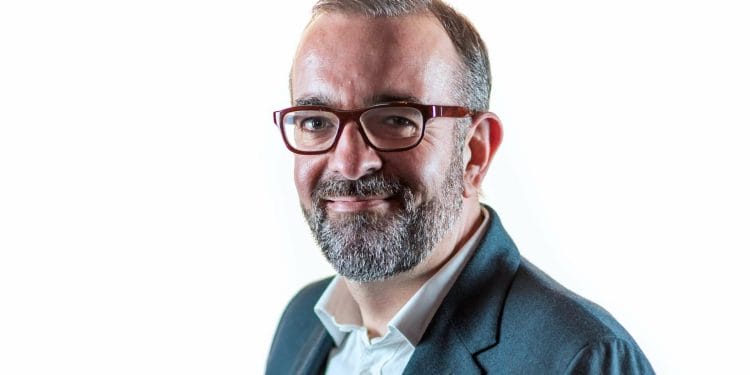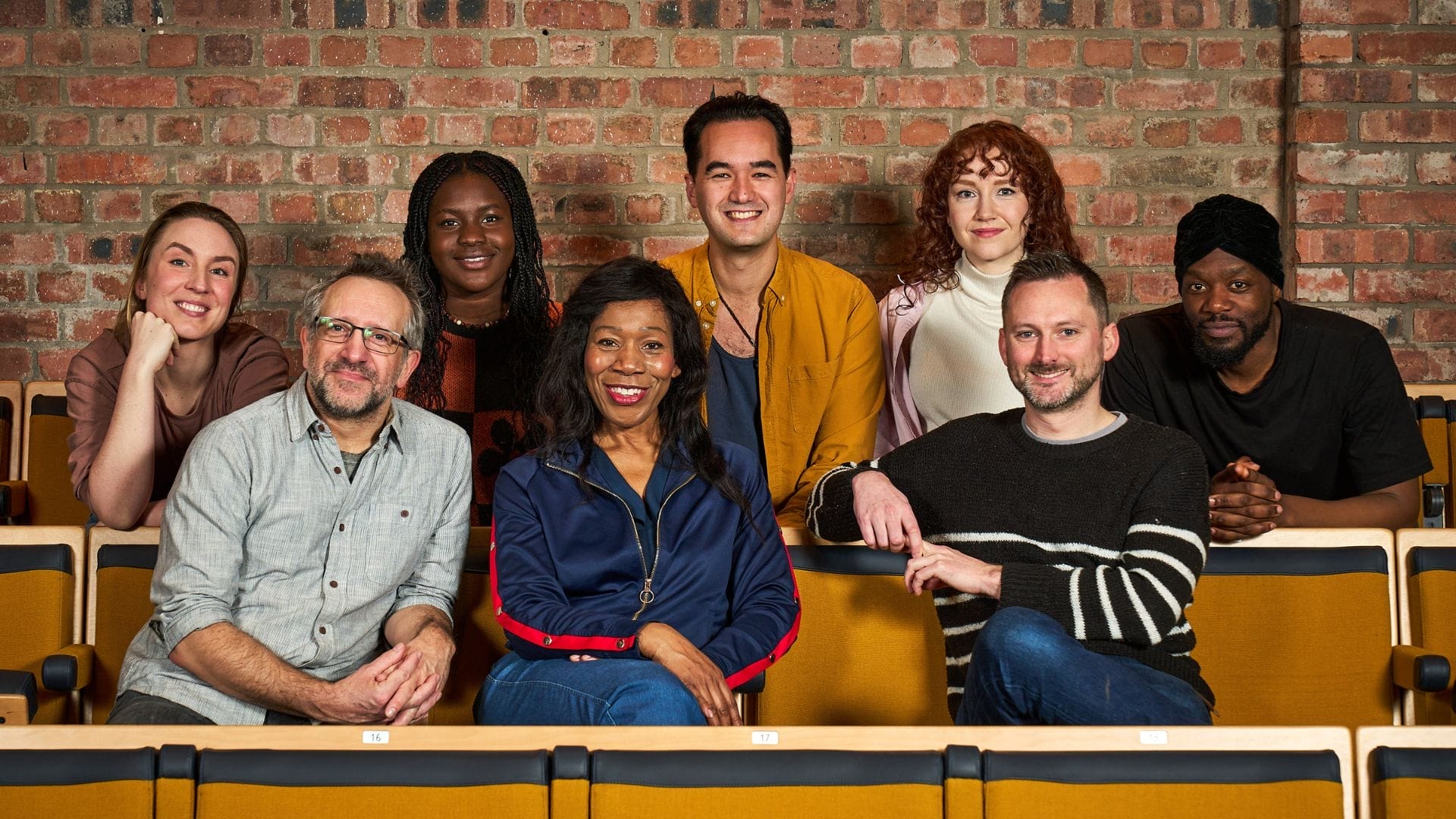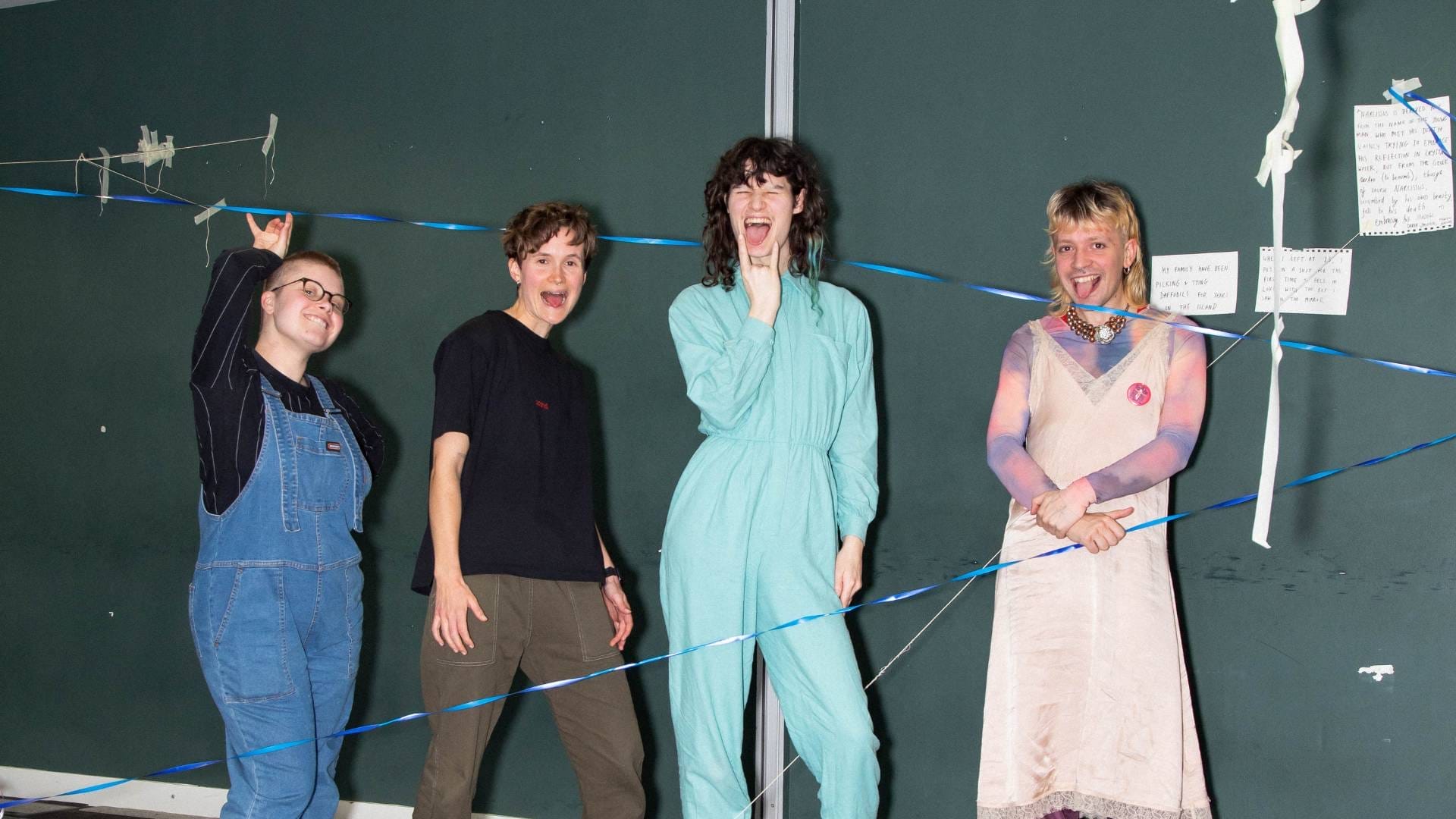Adam Nichols directs a riotous and rough reimagining of Bertolt Brecht’s zany musical, The ThreePenny Opera at The Cockpit.
Maintaining Brecht’s spirit of experimentation, this ambitious modern update of theatre’s first musical defies theatrical convention, whilst aiming to shock, engage, mock and even disturb its audience.
St Albans-based OVO’s The ThreePenny Opera, supported by the Kurt Weill Foundation, mixes beautiful melodies with dark and unsettling themes, resisting the prettiness and neatness of musical theatre convention. The ThreePenny Opera explores the tension between the spectacle and shininess of musical theatre and the gritty, biting Marxist critique of social and economic injustice that Brecht intended.
This production is directed by OVO’s award-winning Artistic Director Adam Nichols and opera singer and Co-director Julia Mintzer (Welsh National Opera, Washington National Opera), with Lada Valešová (Royal Opera House, Opera Holland Park) completing the creative team as Conductor and Musical Director.
The ThreePenny Opera is at The Cockpit 21st September – 8th October 2023.
You’re directing The ThreePenny Opera, what can you tell us about this production?
This is the first major production of The Threepenny Opera to be presented outdoors (at The Roman Theatre of St Albans and The Minack Theatre in Cornwall prior to this run at The Cockpit), and one of the first to feature an actor musician cast.
We’ve introduced a framing device of “the factory of plays” in which two inventors are trying to create the perfect musical, but with very different motivations. This helps to explain the sometimes random and crazy things that happen, as well as bringing out the battle between social message and entertainment which is at the core of the piece.
What was it about Brecht’s zany musical that felt right for an adaptation?
I have loved the play ever since seeing the seminal Donmar Warehouse production, starring a young Tom Hollander as Macheath, in 1995. I directed it at university, and was never completely satisfied with that production, so have always wanted to direct it again. The subject matter never grows old, which is why the play continues to resonate nearly a century after it was written. Corrupt police, the celebritisation of criminals and the double standards we apply to the rich and the poor are perennial issues. And the music, which is really the heartbeat of the show, is fabulous – it never fails to move an audience.
It’s already had two runs, how does it feel now bringing the show to London?
In the open air venues it’s been interesting playing with the breaking of the fourth wall, and the extent to which the audience can be directly engaged in the action. Particularly at the Minack, which is a very grand space, this was pushed quite far, and this helped to bring out the comedy of the piece. Although The Cockpit is a much smaller and more intimate space, I’m looking forward to retaining this heightened style of acting, and direct address. We’re very excited to be making our debut at The Cockpit and the intimate, in the round configuration will be perfect for this chamber piece.
You have a cast of 13 playing 21 instruments, what kind of challenges does that present you as director?
We have 9 actor musicians (out of a total cast of 13) playing 21 instruments and the biggest challenge this creates is creating coherent tracks for each actor to follow through the show. Most of them are playing several instruments and a number of parts, so we have to make sure that they can manage to do act and/or sing and/or play at the same time, in the same place! Instruments often have to be moved around the stage to facilitate different numbers, and there is also choreography that the musicians are involved in as they play. It is an incredibly demanding and busy show for them!
And what’s impressed you most about this cast?
The way in which they have mastered the very specific performance style that Brecht and Weill’s words and music demands. This is largely unfamiliar to a modern audience – and also to many modern actors, who have been trained to perform in a more naturalistic way to suit the needs of TV and film and the influence this has had on theatre over the past few decades. Moving into something which is heightened and stylised, and which you are regularly expected to directly address and challenge the audience, is far from easy, but this cast have mastered it with aplomb.
What would you say to anyone thinking of booking to see The ThreePenny Opera?
You will be entertained, you will laugh and you will leave the theatre humming the tunes. You might love or hate the play or our interpretation, but you will be thoroughly provoked and you definitely won’t have a neutral response!

















